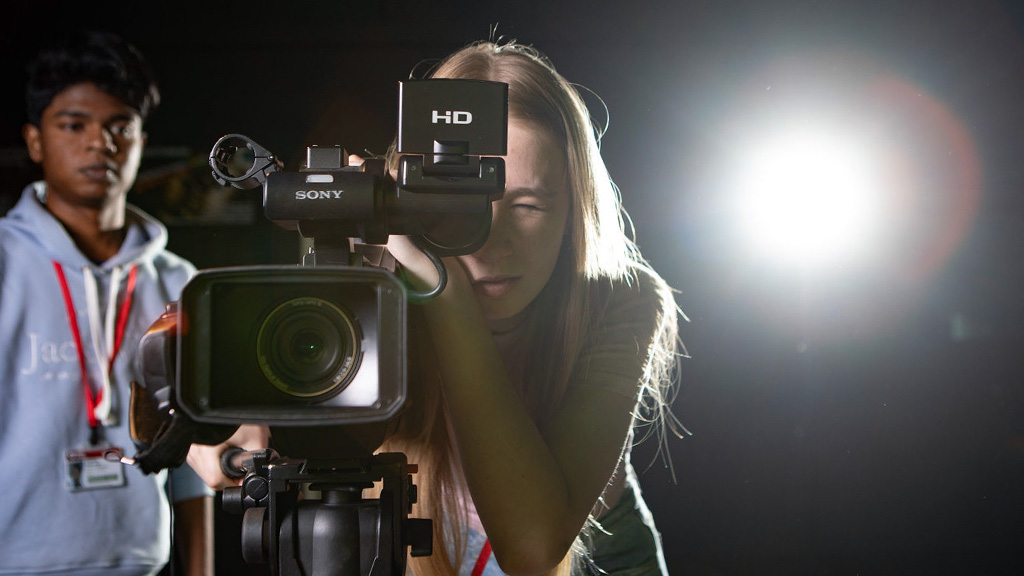Course Overview
Media Studies is a creative, practical and theoretical course, in which you will explore a wide range of media texts, audiences and media institutions. The course aims to enhance your enjoyment and appreciation of the media and its role in your everyday life. It also aims to develop your critical understanding of the media through engagement with a wide range of broadcast, print and E-Media texts. You will also have the opportunity to create your own production pieces as part of your coursework. This course offers great opportunity for educational visits such as the Bradford Media Museum and Media City.
During the A Level Media Studies course, you will learn through: Class discussions, group work, practical sessions, lecture style sessions and educational trips.
What You Will Study
The Eduqas specification offers learners the opportunity to develop a thorough and in depth understanding of key issues, using a comprehensive theoretical framework and a variety of advanced theoretical approaches and theories to support critical exploration and reflection, analysis and debate.
Both component 1 and 2 assesses media language, representation, media industries, audiences and media contexts.
Component 1 - Media products, Industries and Audiences
Section A: Analysing Media, Language and Representation This section assesses media language and representation in relation to two of the following media forms: advertising, marketing, music video or newspapers.
Section B: Understanding Media Industries and Audiences This section assesses two of the following media forms: advertising, marketing, film, newspapers, radio, video games and media contexts.
Component 2 - Media Forms and Products in Depth
Section A: Television in the Global Age
Section B: Magazines: Mainstream and Alternative Media
Section C: Media in the Online Age
Component 3 - Cross Media Production (Coursework)
An individual cross-media production based on two forms (Magazine, Advertising, Television, Music Video, Radio) in response to a choice of briefs set by Eduqas, applying knowledge and understanding of the theoretical framework and digital convergence.
- How You Will Be Assessed
Component 1: Media Products, Industries and Audiences
Written examination: 2 hours 15 minutes
35% of qualificationComponent 2: Media Forms and Products in Depth
Written examination: 2 hours 30 minutes
35% of qualificationComponent 3: Cross-Media Production
Non-exam assessment
30% of qualification - Entry Requirements
5 GCSEs at Grade 9-4, including English Language and Maths.
- Further Study
The A Level in combination with other subjects contributes as a qualification to gain entry to higher education courses in media studies, journalism, cultural studies, film studies, communication studies, media production, television studies, literature etc.





